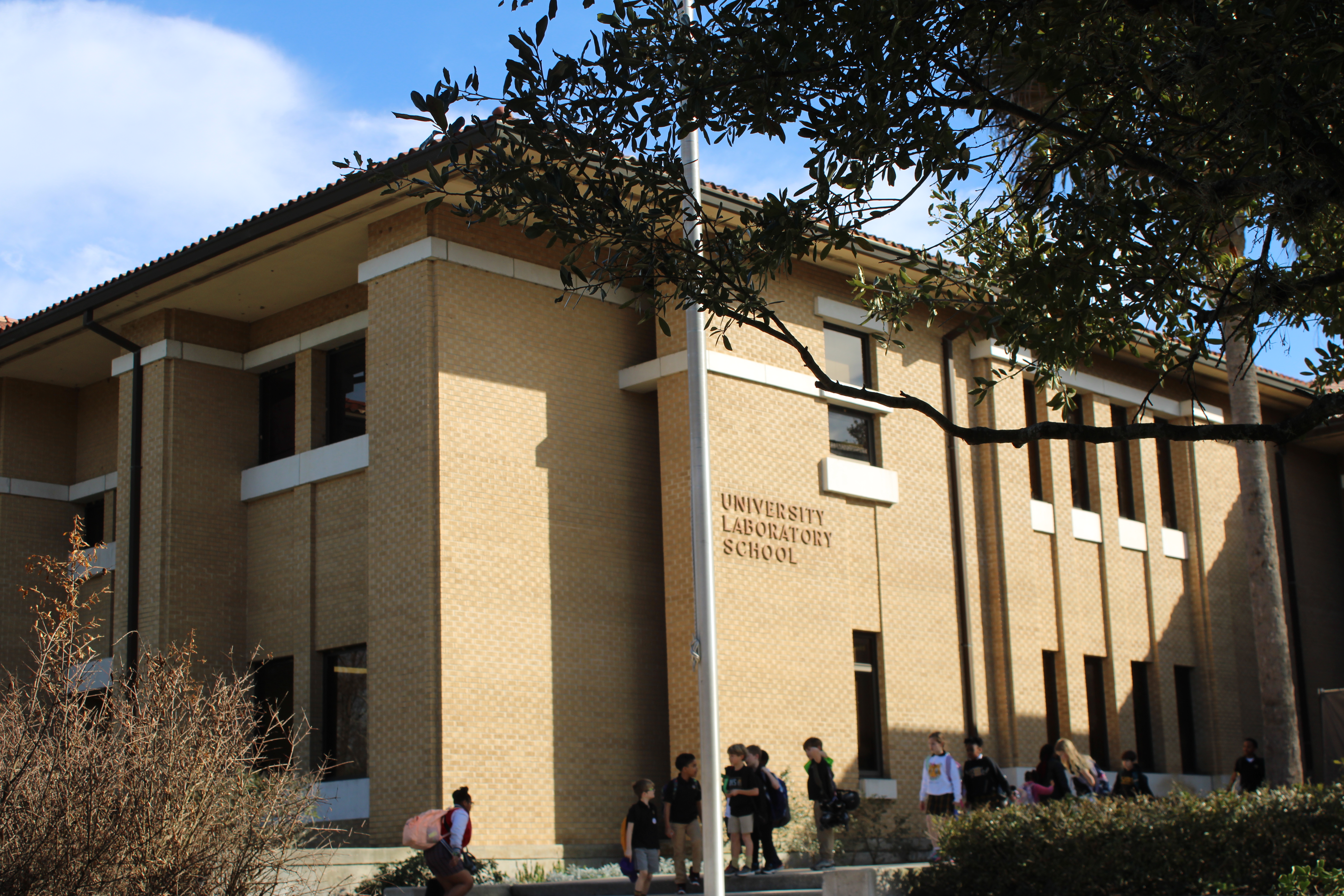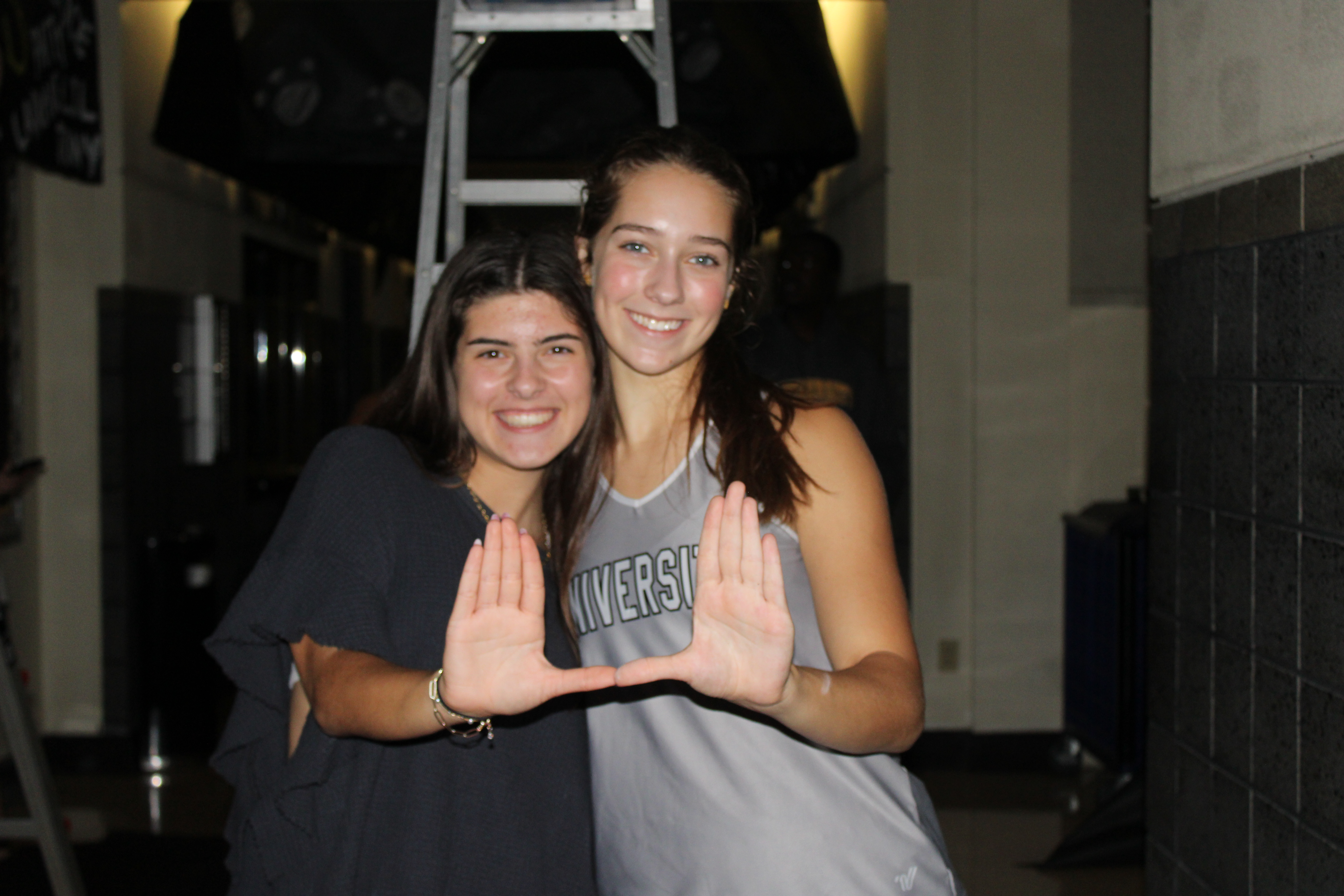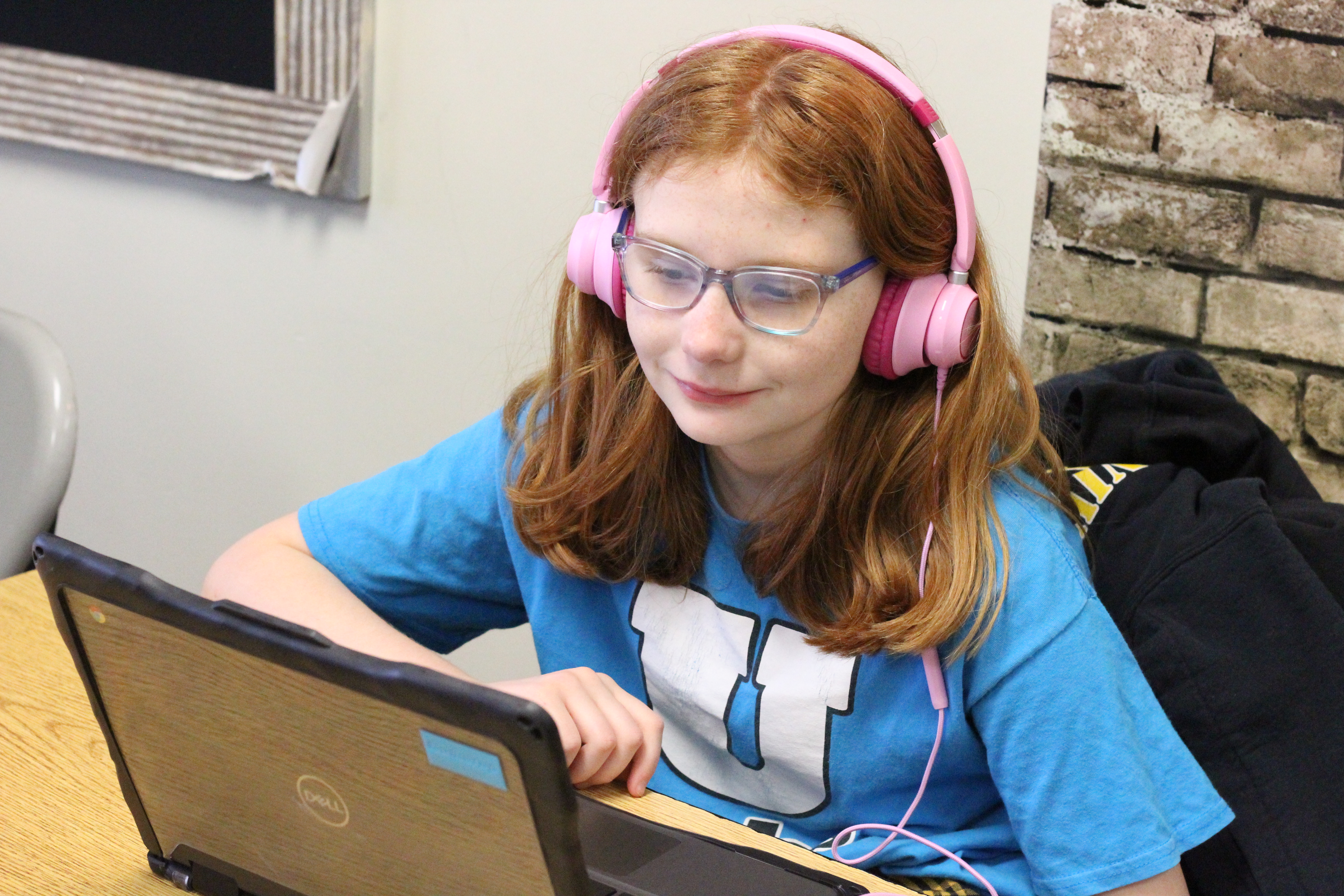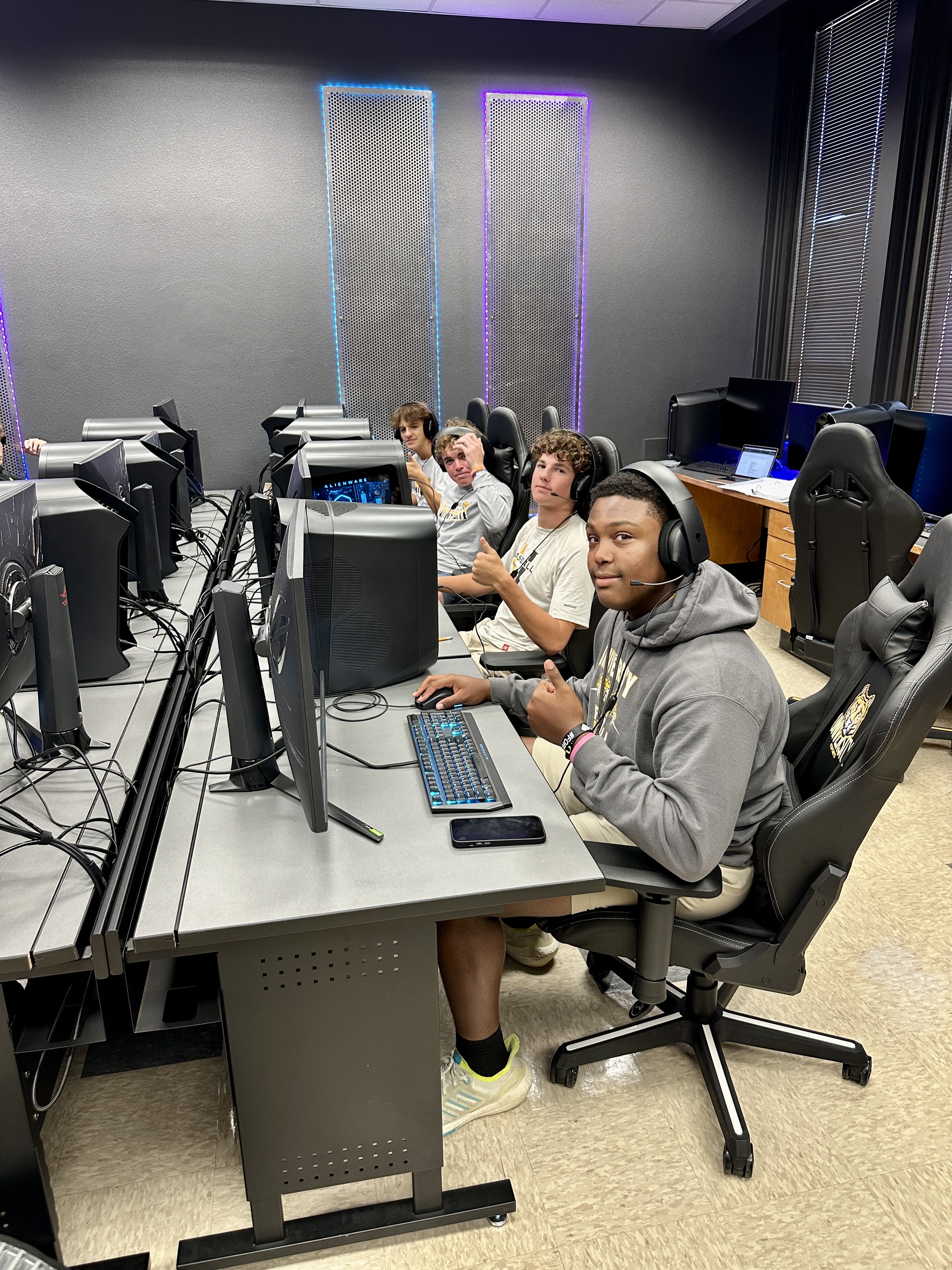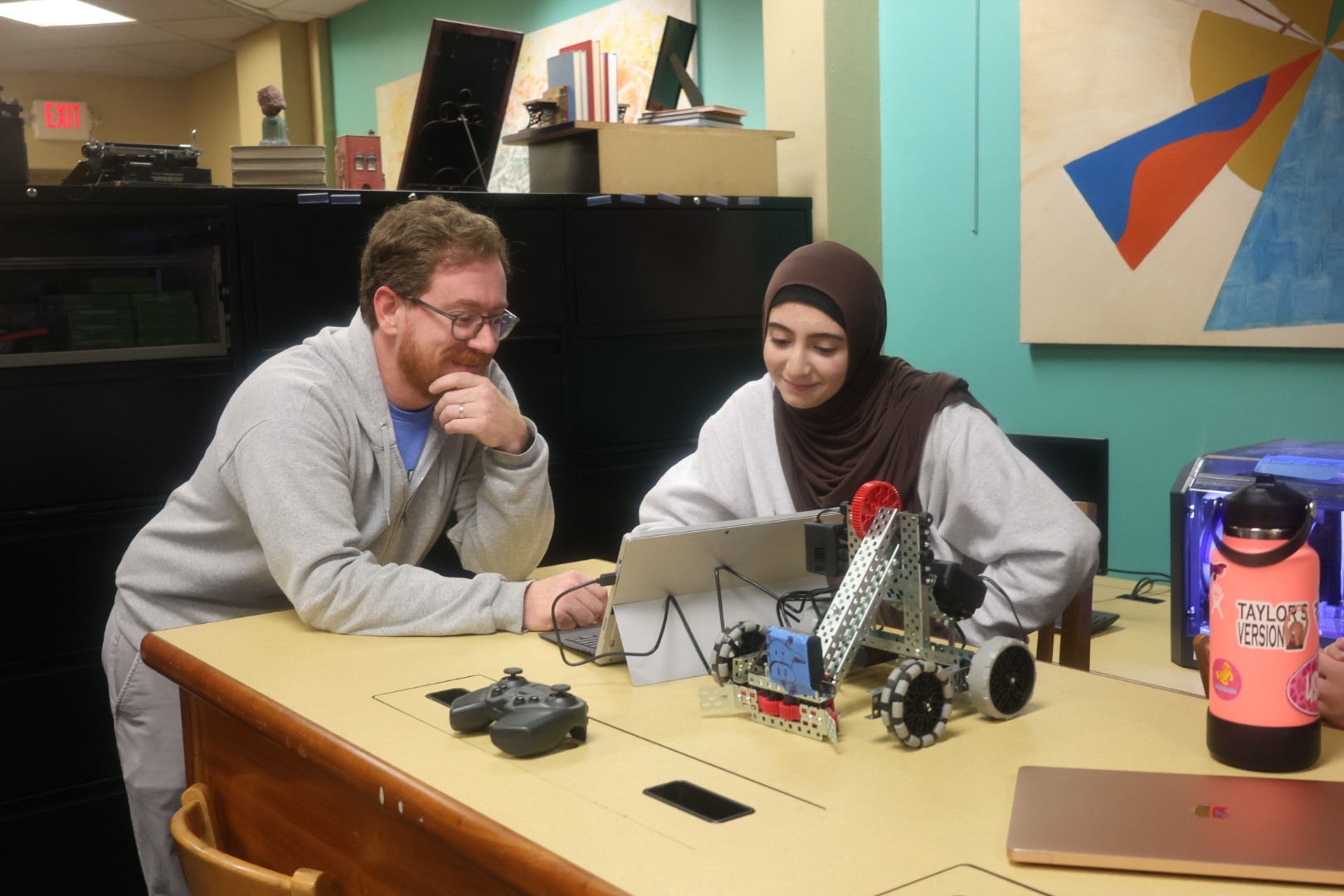High School Academics
At University Laboratory School, the high school years are viewed as a time of preparation for college. A caring and skilled team of educators guides students toward independence as they explore their strengths and interests and apply those to future opportunities.
Our High School Program of Studies 2025-2026 consists of courses in the arts, English Language Arts, mathematics, Physical Education, science, social studies, technology, and World Language. In addition to a traditional college preparatory curriculum, a robust selection of Advanced Placement (AP), Dual Enrollment (DE), and International Baccalaureate (IB) courses are offered to qualified students.
Dual enrollment courses are taught on our campus through Louisiana State University (LSU) and Southeastern Louisiana University (SLU). They offer students opportunities to complete high school requirements and acquire college credit hours simultaneously.
Advanced Placement courses are taught by AP certified instructors and follow the required curriculum from College Board. Students who take AP courses take the AP exams at the end of the school year may earn college credit.
Honors Courses (H) are taught at each grade level and are based on the state curriculum. These courses are more rigorous and require students to study more in-depth concepts and are designed to challenge students.
International Baccalaureate courses follow the international standards set by the International Baccalaureate Organization (IBO). Made up of three required components consisting of Theory of Knowledge, the Extended Essay, and Creativity, Activity, Service (CAS), the Diploma Program (DP) core aims to broaden students’ educational experience and challenge them to apply their knowledge and skills. Students who pursue the full IB Diploma take IB-level classes in all academic areas. Both full diploma and IB course students complete assessments throughout the course that may result in college credit.
You are welcome to visit our school and to see the outstanding college preparatory program we offer.
The Advanced Placement program (AP) allows highly motivated students the opportunity to earn college credit based on qualifying scores on AP exams. The AP program, managed by The College Board, includes courses in a variety of subjects. University Laboratory School has offered AP courses for more than 15 years, and our students routinely earn high scores on AP exams.
Advanced Placement courses provide students with challenging, rich content and the opportunity to develop critical thinking skills. AP courses are designed to prepare students for rigorous college classes.
Visit the Advanced Placement Program website for more information.
The University Laboratory School Dual Enrollment (DE) Program affords juniors and seniors the opportunity to earn a variety of college course grades prior to high school graduation. By participating in the variety of DE courses offered at ULS (Fall Semester, Spring Semester) a student earns real-time grades and generates a Louisiana State University transcript, rather than simply earning “pass” credit for completing or testing out of the course.
Registration for Fall Dual Enrollment courses is in August.
Registration for Spring Dual Enrollment courses is in December.
The main objective at the core of DE is to provide the opportunity for students across the ability spectrum to successfully engage in college courses and meet all expectations they would assume in traditional college courses. DE courses are offered at no expense, maximizing the exposure of students to college courses and controlling the costs associated with the program. ULS classroom facilitators of DE courses work closely with the university faculty Instructors of Record to ensure each course’s college level curriculum and procedures are followed and go well beyond high school level course requirements.
The idea of Dual Enrollment was introduced and piloted by University Laboratory School during the 2005-06 school year through the Advanced Math and Algebra III math courses. The students' initial performance was so impressive, implementation began the following school year with enthusiastic support from LSU A&M Math 1021 and 1022 instructors. This model was then used to develop the DE Program now implemented at schools across the state of Louisiana.
The DE program is an exceptional opportunity for students who plan to attend a university or college in Louisiana or plan to attend a university or college which accepts LSU transcripts. Contact Mrs. Amy Rouse, Dual Enrollment Coordinator, at ajrouse@lsu.edu for additional information.
The International Baccalaureate Program (IB) began in 1968 by American ex-patriots living in Europe. Initially, the purpose of the IB was to offer the children of Americans living abroad a challenging college preparatory curriculum guided by rigorous standards. An IB education ensured that students were well prepared for study at any university. Today, there are more than 6,000 IB schools worldwide; the common standards and common assessments maintain the high quality of the program.
University Laboratory School was authorized as an IB school in 2001; our first IB Diploma Program students graduated in 2003. Since then, ULS students consistently score above the international average on their IB exams, and most of our Diploma Program (DP) candidates earn the prestigious IB Diploma. Students who earn passing scores on their IB assessments may receive college credit for their efforts.
Our DP graduates have earned acceptance into some of the most prestigious universities in the country, including Harvard, Yale, Massachusetts Institute of Technology, Stanford University, and Vanderbilt University. Our graduates are scattered all over the world and are succeeding in a wide range of professional fields.
Please visit the International Baccalaureate website and the ULS IB Diploma Program Booklet for more information.
AP, IB, and DE
The IB Diploma is our most challenging curriculum. It is a two-year program (11th and 12th grades) in which students take courses in six subject areas: English, Math, Social Studies, Science, World Language and Art. They also take Theory of Knowledge, an interdisciplinary course that addresses ways of knowing and metacognition. In addition, students complete community service projects as part of the Creativity, Action, Service component and the Extended Essay, a research essay on a topic of the student’s choice. To receive the IB Diploma, students must attain satisfactory scores on all components of the Diploma Program.
Higher level courses are the most challenging courses we offer. These are comparable to college courses in their depth and breadth of content. Standard level courses are more rigorous than traditional high school courses.
Diploma candidates must complete 3 classes at the higher level and 3 at the standard level. Many colleges offer advanced credit for HL classes; some may offer credit for SL classes. For more information on the IB program, please contact IB Program Coordinator Candence Robillard at crobil1@lsu.edu.
CAS stands for Creativity, Action and Service and is a required component of our IB Diploma Program. Students must complete 150 hours of CAS work over the two years of the IB program. These activities range from volunteer work in the community to a student’s learning a new skill or sport. IB Diploma candidates complete one major independent CAS project and a variety of smaller projects. For more information on CAS, please contact CAS Coordinator Karen Holden at kholden@lsu.edu.
Yes. IB and AP classes are afforded a 10-point grading scale and an additional quality point on students’ grade point averages (A=5.0, for example). For more information on the impact of weighted grade point averages, please contact ULS High School Counselor Kristy Gremillion at kgremillion@lsu.edu.
No. One of the main differences between IB and AP is that AP courses are independent of each other.
No. A student may choose to take individual IB courses. Students who enroll in HL courses are required to take the IB exams. Students in SL courses are encouraged to take the IB exam. Spaces in IB classes may be limited, and Diploma candidates have enrollment priority.
Yes. Both IB and AP exams cost fees per test. It is the student’s responsibility to pay these fees. If a student has financial need, there may be assistance to help pay for these. Visit Tuition and Fees for a full list of required fees. Please direct any questions concerning exam fees to the IB Coordinator, Dr. Candence Robillard crobil1@lsu.edu.
Any junior or senior who meets eligibility requirements may participate. Eligible students and their parents independently choose to participate in DE.
Qualifying juniors and seniors complete applications the first week of school for fall semester courses, and in December for spring semester courses with the help of the Dual Enrollment Coordinator.
Yes. As long as a student follows the University withdrawal dates, s/he may withdraw from the course without penalty or with a “W,” and the withdrawal will not be counted in the total number allowed for college freshmen at LSU A&M. Students who do not plan to attend LSU A&M after graduation, should check with their specific university to determine if a DE “W” will or will not count in the number of withdrawals allowed. Withdrawal dates (with a “W” and without a “W”) are communicated to DE students at the beginning of each semester by classroom teachers and the Dual Enrollment Coordinator.
Students who wish to withdraw from a course must fill out the withdrawal form posted in the DE Google class. This form must be signed by both the student and parent and returned to DE Coordinator Aimee Welch-James before the published deadline dates. The participating university may require additional paperwork to be completed. Mrs. Welch-James will correspond with the student and classroom teacher regarding the steps that must be taken and/or paperwork that must be submitted to complete the process.
Transcript requests must be submitted by the student to LSU A&M using myLSU. At the end of every semester after final grades are published, students should download and save their college record, checking for accuracy, using the logon ID and password.
Students are encouraged keep updated copies for him/herself and should contact his/her classroom teacher and DE Coordinator immediately if there are any errors. After high school graduation, students must request/send official copies of LSU A&M, and LSU Lab School transcripts to the universities they are interested in attending the following fall. Failure to do so could jeopardize college enrollment.
Also, each student must submit a copy of his/her ACT or PSAT scores each semester with each application. Students must acquire copies of their ACT score sheet through the ACT testing site using their individual ACT logon id and password. Students are given a copy of PSAT results and may also access them through their College Board account, as these scores may also be used for DE qualification.
No fee is charged for LSU A&M courses.
Because the college course calendar and the high school attendance calendar do not completely coincide, this is possible. Classroom teachers may give additional graded assignments that are averaged into the high school course grade, but not the college grade. This may cause the high school transcript grade and the college transcript grade to differ.
An AP, DE, or IB grade of D or higher earns students an extra quality point. A 10-point grading scale is used to determine grades for AP, DE, and IB. Additionally, at the beginning of the school year, each classroom DE teacher distributes a course syllabus that details how the course grade will be calculated for the course.
For an appeal of a final grade for a DE course, the student should contact the DE Coordinator. Appeals of final grades must be initiated by the student within 30 days after the beginning of the next regular semester. If the decision reached in this step requires changes in an official record of the University, e.g., a grade change, or the release of the student from a specific obligation, the IOR must comply with all University regulations and procedures necessary to accomplish the change.
For an appeal of a final grade for a DE course, the student should contact the DE Coordinator. Appeals of final grades must be initiated by the student within 30 days after the beginning of the next regular semester. If the decision reached in this step requires changes in an official record of the University, e.g., a grade change, or the release of the student from a specific obligation, the IOR must comply with all University regulations and procedures necessary to accomplish the change.
DE applications are electronic. Juniors and seniors will complete an application during the first week of the school year for fall semester courses and in December for spring semester courses. Students will take it home to review with his/her parents. A parent’s signature is required on the application for final submission.
School personnel facilitate the application process. Final enrollment decisions are made by the student and his/her parents. Once request applications are submitted, privacy laws require that the DE relationship remains between the student and the participating university. That said, school personnel are certainly available to help provide guidance and direction with problems and answer questions that may arise.
First, students should maintain a DE folder that includes this document. Students should also keep a copy of all mailings from LSU A&M, especially those that include logon id information and passwords and a copy of all application requests and withdrawal emails (if applicable), as well as his/her most recent ACT score sheet. At the end of each semester, students should print copies of college records from LSU A&M. Finally, upon high school graduation, students should request/send official copies of LSU A&M and University Laboratory School transcripts to those universities to which they are applying for admission the following fall.
Depending on the severity of the offense, consequences will be enforced at ULS. Since high school DE students are also LSU A&M students, the student will be referred to the LSU A&M Dean of Students to determine consequences at LSU A&M.
High School Leadership and Support
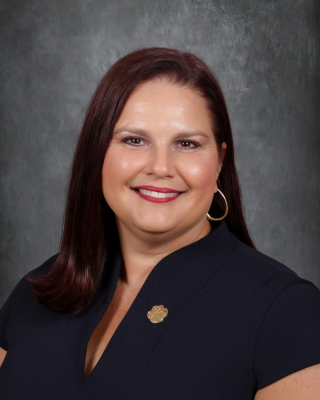
Aimee
Welch-James
High School Principal & Associate Director of Academic Programs & Services
Email Aimee Welch-James


High School Counseling Services



